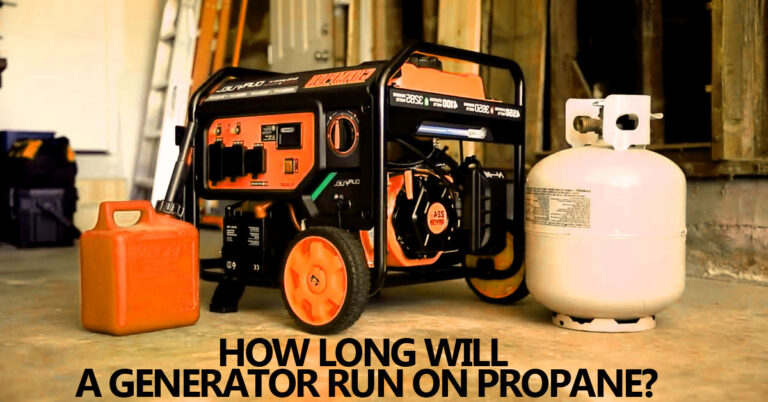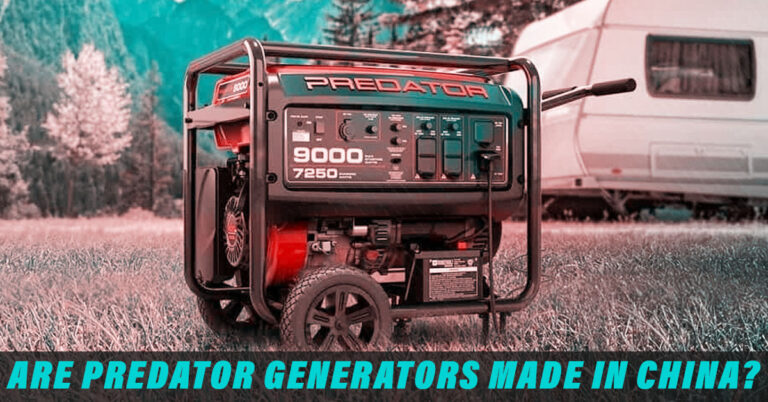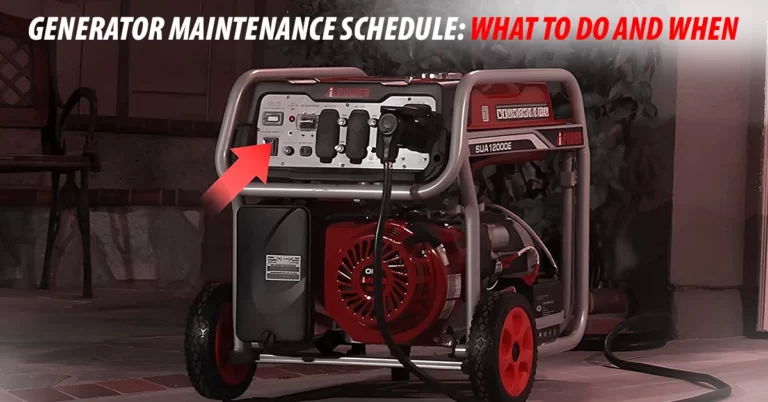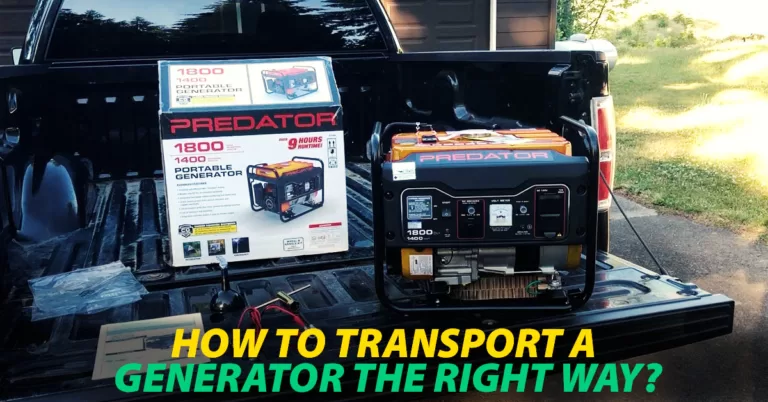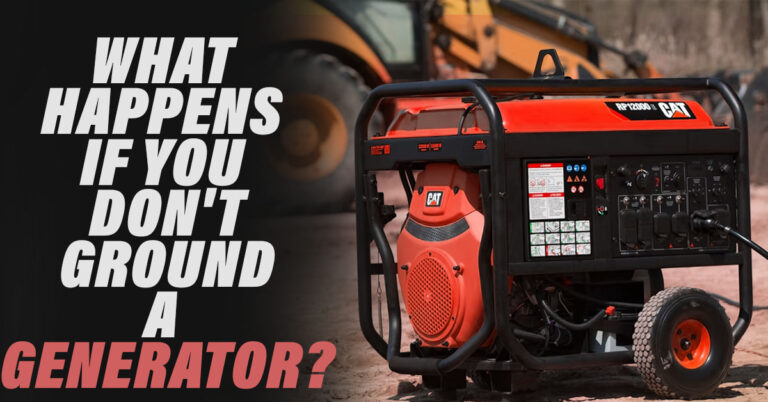What Is A CARB-compliant Generator?
A mechanical device known as a generator transforms kinetic energy into electrical energy. Because they provide a backup supply of energy during blackouts or in places without access to the electrical grid, generators are crucial.
The California Air Resources Board, or CARB, is a federal agency responsible for policing air pollution. CARB has developed emissions standards for a range of equipment types, including generators, in an effort to reduce air pollution in the state. So what is a CARB-compliant generator? The term “CARB-compliant” refers to a generator that complies with the emissions standards defined by CARB and is permitted for use in California.
CARB (California Air Resources Board)
Role Of CARB In Regulating Air Pollution In California
California’s governmental agency, the California Air Resources Board (CARB), is in charge of controlling and lowering air pollution in the state. CARB has the authority to enact and enforce laws for the prevention of air pollution, including requirements for the emissions of different kinds of machinery, such as generators.
Requirements For CARB-Compliant Generators
Generators need to adhere to specific emissions requirements specified by CARB in order to be considered CARB-compliant. These requirements are intended to lessen the number of dangerous pollutants, including nitrogen oxides and particulate matter, that generators discharge into the atmosphere. Generators must pass these emissions tests and be certified by CARB before they are permitted to operate in California. In order to sell generators that comply with CARB regulations in California, generator makers or importers may additionally need to make payments or take part in other initiatives.
Benefits Of Using A CARB-Compliant Generator
Using a generator that complies with CARB regulations has various advantages:
Reduced Emissions
When compared to non-compliant generators, CARB-compliant generators emit much less hazardous emissions, including nitrogen oxides and particulate matter. This might contribute to cleaner air and better public health in California.
Ability To Use In California
Generators that comply with CARB are permitted to operate in California since they adhere to the state’s emission regulations. In the state, non-compliant generators are prohibited.
Potential For Financial Incentives
There may sometimes be cash rewards offered to people or companies that use generators that comply with CARB regulations. The California Energy Commission, for instance, could provide rebates or other financial incentives for the purchase of generators that comply with CARB regulations.
Improved Fuel Efficiency
CARB-compliant generators may save money on fuel and have a lower overall environmental impact because they are designed to be more fuel-efficient than non-compliant generators.
Longer Engine Life
Generators that are CARB-compliant may have longer engine lives than non-compliant generators since they emit fewer hazardous pollutants. Long-term maintenance and repair expenditures may be reduced as a result.
Increased Resale Value
CARB-compliant generators may sell for more money than non-compliant counterparts due to their approval for use in California and potential increased demand.
Compliance With State Regulations
Businesses and individuals may comply with state laws and avoid possible fines or other penalties by using a CARB-compliant generator.
Overall, employing a generator that complies with CARB regulations may contribute to environmental and public health protection and may also open doors to financial incentives.
How To Determine If A Generator Is CARB-Compliant
There are numerous techniques to check whether a generator complies with CARB regulations:
Look For The CARB Certification Label
Many generators that are CARB-compliant may have a CARB certification label on them, signifying that they adhere to the state’s emissions regulations. The generator’s model, serial number, and certification date should all be included on the label.
Check The Manufacturer’s Website
On their websites, several CARB-compliant generator manufacturers will identify the models that they have produced. To determine whether the model of generator you’re interested in is classified as being CARB-compliant, you may do a search for it.
Contact Manufacturer Or Retailer
You might try contacting the maker or merchant directly if you are unable to locate information about the generator’s compliance status online. They ought to be able to tell you whether the generator complies with CARB regulations.
Before buying or operating a generator in California, be sure that it complies with CARB regulations since non-compliant generators are not permitted there.
What’s The Difference Between CARB and the EPA?
California’s governmental agency, the California Air Resources Board (CARB), is in charge of controlling and lowering air pollution in the state. The Environmental Protection Agency (EPA) is a United States government agency in charge of controlling air and water pollution, as well as other environmental issues, in order to protect public health and the environment.
Although both CARB and the EPA aim to control and lessen air pollution, their regions of responsibility and particular legislation may vary. While the EPA’s standards cover the whole country, CARB’s restrictions only apply to the state of California. Additionally, the emissions regulations set by the EPA and CARB for certain equipment types, such as generators, may vary. To achieve compliance, it is crucial to know which agency’s rules are relevant to your equipment and location.
What Is The Difference Between Non-CARB-Compliant And CARB-Compliant?
A generator that has been authorized for use in the state of California and complies with the emissions requirements established by the California Air Resources Board (CARB) is known as a CARB-compliant generator. A generator that does not adhere to CARB’s emissions regulations and is not authorized for operation in California is said to be “non-CARB-compliant.”
The quantity of hazardous pollutants that CARB-compliant and non-CARB-compliant generators create is the primary distinction between them. In comparison to non-compliant generators, CARB-compliant generators are designed to create less hazardous emissions like nitrogen oxides and particulate matter. This might contribute to cleaner air and better public health in California.
What Should I Do If My Generator Is Non-CARB-Compliant?
Your generator is not authorized for operation in the state of California if it does not comply with CARB regulations. In the state of California, it is forbidden to use non-compliant generators, and doing so might result in fines or other penalties.
There are a few possibilities you might take into account if you need to operate a non-CARB-compliant generator in California:
Upgrade To A CARB-Compliant Generator
An upgrade to a CARB-compliant generator is one option. Although there may be a cost upfront, doing this will let you operate your generator in California without worrying about fines or other consequences.
Use The Generator Outside Of California
If you just need to operate the generator outside of California, you are still allowed to do so as long as it satisfies the state’s emission requirements.
Sell Or Dispose Of The Generator
The generator may be sold or responsibly disposed of if you decide it is no longer needed or wanted.
FAQs
Why is CARB Compliance Important For Generators?
The air quality and public health may be negatively impacted by the dangerous pollutants that generators may emit, such as particulate matter and nitrogen oxides. The California Air Resources Board (CARB) aids in lowering the quantity of these pollutants emitted into the atmosphere by mandating generators adhere to certain emissions guidelines. In the state, it is forbidden to use non-compliant generators, and doing so might result in fines or other consequences. Therefore, it’s crucial to confirm that a generator complies with CARB regulations before using it in California.
Which Other States Are CARB-Compliant?
The emissions limits set by CARB have been accepted by certain states in the US or states with equivalent emissions regulations. Connecticut, Delaware, Maine, Maryland, Massachusetts, New Jersey, New York, Oregon, Rhode Island, and Vermont are some of these states.
How Do I Know If A Generator Is CARB-Compliant?
The CARB certification sticker on the generator, checking the company’s website to see whether the model is listed as being CARB-compliant, or contacting the manufacturer or merchant directly are all options for finding out if a generator complies with the CARB regulations.
Can I Use A Non-CARB-Compliant Generator In California?
No, California prohibits the use of generators that do not comply with CARB regulations. In the state, using a non-compliant generator may result in fines or other consequences.
Can I Sell A Non-CARB-Compliant Generator In California?
No, non-CARB-compliant generators are not allowed to be sold in California.
Can I Use A CARB-Compliant Generator Outside Of California?
Yes, CARB-compliant generators may be used in states other than California as long as they satiate the state’s emission requirements.
Is It More Expensive To Buy A CARB-Compliant Generator?
CARB-compliant generators could sometimes cost more upfront than non-compliant generators. On the other hand, they could be more fuel efficient and have longer engine lives, which might result in long-term savings on fuel and maintenance expenses.
Can I Modify A Non-CARB-Compliant Generator To Make It Compliant?
In rare circumstances, it could be feasible to alter a generator that doesn’t satisfy CARB emissions criteria in order to comply with them. However, this may be a time-consuming and expensive procedure, so switching to a CARB-compliant generator could be more economical.
What Is The Lifespan Of A CARB-Compliant Generator?
A CARB-compliant generator’s lifetime might vary based on the brand and model, use patterns, and maintenance procedures. In order to prolong the life of your generator, it is generally wise to adhere to the manufacturer’s maintenance and care recommendations.



